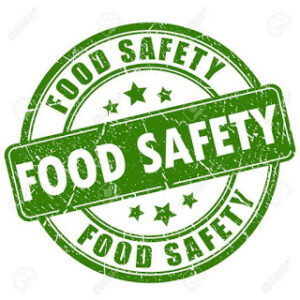In the food industry, food safety certification is more than a compliance requirement, it’s the foundation of trust, reputation, and long-term success. Whether you’re a manufacturer, distributor, or retailer, implementing a strong Food Safety Management System (FSMS) helps protect consumers, meet regulatory standards, and enhance your brand’s credibility.
Three of the most recognised food safety standards worldwide are ISO 22000, FSSC 22000, and BRCGS. Each offers distinct benefits depending on your goals, customer requirements, and market presence.
In this guide, QHSE ABERDEEN explains the key differences to help you choose the certification that best fits your organisation.
ISO 22000: A Flexible, Globally Recognised Food Safety Standard
ISO 22000 is an international food safety management system standard developed by the International Organization for Standardization (ISO). It provides a flexible framework for any organisation involved in the food supply chain, from production to retail.
Key Features
-
Built on the ISO High-Level Structure for easy integration with other ISO systems (such as ISO 9001 or ISO 14001).
-
Based on HACCP principles and risk-based thinking.
-
Scalable and suitable for businesses of all sizes.
Best Suited For
Companies that want a globally recognised FSMS without GFSI benchmarking. It’s ideal for businesses already aligned with ISO standards seeking consistency across management systems.
FSSC 22000: ISO-Based and GFSI-Recognised for Global Credibility
FSSC 22000 (Food Safety System Certification) enhances ISO 22000 by including sector-specific requirements and achieving GFSI (Global Food Safety Initiative) recognition. This makes it a preferred choice for companies supplying to international retailers or brands.
Key Features
-
Combines ISO 22000 with prerequisite programs (PRPs) for specific food sectors.
-
Fully GFSI-benchmarked, meeting global retailer expectations.
-
Seamless integration with other ISO management systems.
-
Certification valid for 3 years, supported by annual surveillance audits.
Best Suited For
Organisations aiming for international credibility and GFSI recognition, while maintaining the structure of ISO-based systems.
BRCGS: Retailer-Driven and Highly Prescriptive for Brand Assurance
BRCGS (Brand Reputation Compliance Global Standards) is a retailer-driven certification focused on product safety, quality, and operational control. Originating in the UK, it’s now recognised by major retailers in the UK, USA, and Canada.
Key Features
-
Highly detailed requirements for hygiene, traceability, and product control.
-
Strong emphasis on brand protection and customer assurance.
-
Requires annual audits and continuous improvement processes.
Best Suited For
Suppliers to large retailers or private-label manufacturers who require strict traceability and compliance. It’s especially relevant in highly regulated markets where brand trust is critical.
Comparison of Key Differences
| Feature | ISO 22000 | FSSC 22000 | BRCGS |
|---|---|---|---|
| GFSI Recognition | No | Yes | Yes |
| Flexibility | High | Moderate | Low (Prescriptive) |
| Integration with ISO Systems | Seamless | Seamless | Limited |
| Retailer Requirements | Rare | Sometimes | Often Mandatory |
| Audit Frequency | Every 3 years (with surveillance) | Every 3 years (with surveillance) | Annually |
| Focus | FSMS Framework | FSMS + Sector Requirements | Product Safety, Quality, Compliance |
Benefits of Food Safety Certification
Implementing a recognised food safety management system offers clear business advantages:
-
✅ Enhanced food safety: Reduces hazards and ensures compliance with legal standards.
-
✅ Increased customer trust: Demonstrates visible commitment to quality and safety.
-
✅ New market access: GFSI-recognised certifications (FSSC 22000, BRCGS) open doors to global supply chains.
-
✅ Operational efficiency: Streamlines processes and reduces waste.
-
✅ Brand protection: Strengthens reputation through proactive risk management.
-
✅ Continuous improvement: Encourages accountability and ongoing development.
How QHSE ABERDEEN Supports Your Food Safety Certification Journey
Achieving ISO 22000, FSSC 22000, or BRCGS certification requires expertise, detailed planning, and ongoing maintenance. At QHSE ABERDEEN, we help businesses across Scotland implement and maintain robust food safety management systems that meet international standards.
Our Services Include
-
Gap Analysis: Identify strengths and opportunities for improvement.
-
Implementation Support: Guidance on documentation, staff training, and system setup.
-
Internal Audits: Independent reviews to prepare for third-party certification.
-
Integration: Align food safety with existing ISO frameworks (e.g. ISO 9001, ISO 14001, ISO 45001).
-
Post-Certification Support: Maintain compliance and continuous improvement over time.
Choosing the Right Food Safety Standard
The right certification depends on your organisation’s goals, customer expectations, and target markets.
Whether you want the flexibility of ISO 22000, the global recognition of FSSC 22000, or the retailer assurance of BRCGS, QHSE ABERDEEN offers the expertise to make certification simple, effective, and sustainable.
By investing in food safety certification, your business not only protects consumers but also strengthens its competitive advantage and opens doors to new opportunities.







